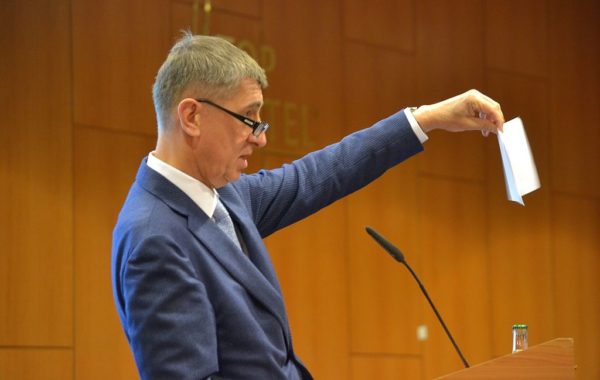Czech Republic’s second-richest man, Andrej Babis, and his party have won the country’s general election.
The 63-year-old populist billionaire campaigned on an anti-establishment and Eurosceptic platform.
With all votes counted, Andrej Babis’ centrist movement ANO (Yes) collected a share of almost 30% – nearly three times that of its closest rival.
The center-right Civic Democrats and the Pirates Party came second and third with more than 10% each.
According to the AFP, the Pirates will make their debut in parliament with 22 seats.
Turnout was almost 61%.
Andrej Babis is now set to become prime minister after coalition negotiations. However, he told Reuters that while he had “invited everyone for talks”, he was not prepared to “cooperate” with either the far-right, anti-EU Freedom and Direct Democracy party or the Communist Party.
He made his estimated $4 billion fortune in chemicals, food and media – but he has also faced numerous scandals including a fraud indictment and accusations he was a communist-era police agent.

Czechia: Czech Republic Plans to Change Name
Milos Zeman: Czech president drunk at public display of crown jewels
Czech President Milos Zeman pelted with eggs on Velvet Revolution anniversary
Andrej Babis says he would not bring the Czech Republic in to the eurozone but he wants the country to stay in the EU, telling Reuters he would propose changes to the European Council on issues like food quality and a “solution to migration”.
The ANO’s current coalition partner, the ruling center-left Social Democrats (CSSD), saw its share of the vote tumble to become the sixth-largest party, and has talked down the possibility of another coalition.
The Civic Democrats have also ruled themselves out of governing alongside Andrej Babis.
The Czech Republic’s outgoing leader, Social Democrat Bohuslav Sobotka, headed a coalition formed with Andrej Babis’s party after a 2013 snap election.
However, in May, Bohuslav Sobotka submitted his government’s resignation because of a disagreement with Andrej Babis, who was serving as finance minister at the time.
He was unhappy about alleged unexplained business dealings involving Andrej Babis.
On seeing the rise of the SPD Bohuslav Sobotka was shocked, saying: “How is it possible that in the Czech Republic, in a situation when the country is doing very well, when we are a stable, safe country, we have achieved many things in the social sphere in the past four years, people are increasingly in favor of extreme views?”
The Social Democrats’ tally of 7.3% was their worst result since the Czech Republic split from Slovakia in 1993.
After the vote, Andrej Babis thanked his voters and said he had not expected the result after “lies” in a “massive, massive disinformation campaign against us”.
